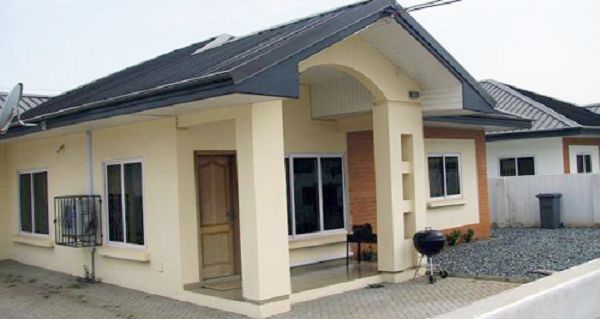
The mortgage clinic
Mortgages in rural England started around 1832. These facilities started as building societies.
Building societies are similar to credit unions which have members of mutual organisation.
Advertisement
Today banks and mortgage companies in the UK and US give mortgages to their willing clients.
Contemporary Ghanaian Mortgage case
In Ghana, mortgages are written by banks, notably GHL Bank, Republic Bank, Stanbic Bank and others.
For one to go in for a purchase mortgage one needs to first identify a property, either from a real estate developer or from a private vendor, that is, if the person intends to buy a house.
Mortgage companies also give Home Construction and Home Completion mortgages or even land purchase.
There are Equity Release and Home Improvement mortgages available for mortgage clients as well.
Loan term for mortgages in the Western countries is 30 years and even beyond. Meanwhile, in Ghana, most banks give loan tenor of 15 years and sometimes 20 years maximum.
The currencies in which banks lend to clients are either in cedis, US dollars or sometimes UK pound sterling.
Currency preference is mostly the lender’s decision or guidelines given to it by the Bank of Ghana, although borrowers can sometimes make a choice.
There are two kinds of loans, fixed rates and variable rates.
Variable loans allow lenders to make adjustment to the interest rates from time to time when components such as inflation changes. Fixed rates do not give the lender any opportunity to make adjustment on the interest charged.
This makes fixed rate slightly higher than the variable or floating rate.
Most banks use amortisation schedule to charge interest rates on the disbursed amount, which means you are charged portion of interest and portion of principal monthly for the entire period.
The loan monthly repayment schedule is structured in a way that more of the interest and less of the principal is paid at the beginning, equal payments in the middle years and less interest and more principal at the latter part of the loan.
There are commercial mortgages which are to secure commercial properties such as offices, shopping malls, hotel buildings and other commercial activities.
Here the commonest type in Ghana is residential properties.
Mortgages are given to persons who earn regular income, both salaried workers and the self-employed.
Just like normal bank loans in Ghana, the repayment-to-income ratio (RTI) is 40 per cent of the borrower’s monthly income.
This means that only up to 40 per cent of the borrowers income can be used as monthly repayment. Multiples of that give the loan amount the borrower is qualified for.
The mortgage process should normally take about six weeks to complete.
If a client is applying for a purchase mortgage and the property is ready, client can move in once the paper work is over and loan process is closed and disbursed.
Some clients may think that the six weeks is a long period, but they need to consider the due diligence that needs to be undertaken before disbursement is made.
Searches, valuation and surveying need to be done to confirm vendor’s ownership, market value and actual position of the subject property.
It is standard practice that applicants should make some down payment towards the value of the property. The mortgage house does not disburse the full value of the property.
This is known as Loan to Value or LTV.
It is usually 20 per cent of the value or price of the property that should be paid to the vendor, after which the remaining 80 per cent is paid by the mortgage company or bank.
The loan amount will be the 80 per cent that has been disbursed.
Some banks may sometimes be benevolent enough to disburse the full value of the property, that is 100 per cent financing.
There are many risk factors associated with loans disbursed to clients.
Therefore, lenders undertake risk mitigation measures by transferring some of the risks to insurance companies.
The three main insurance policies used are: property or hazard insurance, life assurance policy and in case of 100 per cent financing there is the collateral replacement indemnity (CRI).
The property insurance is against fire or storm affecting part or whole of the building, while the life policy is against temporary or permanent disability or at worst, death.
In the case of the CRI, a third insurance cover is undertaken to cover a portion of the down payment the applicant will have made.
When it is difficult for a client to qualify for a particular loan amount due to income constraints, the client has three options to consider.
These are: (1) Co-borrowing with one’s spouse, that is if he or she has regular income and is willing.
(2) doing more down payment by paying more than the required 20 per cent to the vendor, and
(3) choosing a property whose price or value is lower than one under description.
Applicants can even add other sources of income if they can prove it, such as part-time teaching or income from their other jobs apart from their regular places of work.
This will shore up their income.
The benefit of giving out mortgage to the lending bank is that the bank earns interest income from the borrower.
The writer has an MBA in Marketing and is a mortgage specialist.
0244 244539
E-mail: [email protected]



